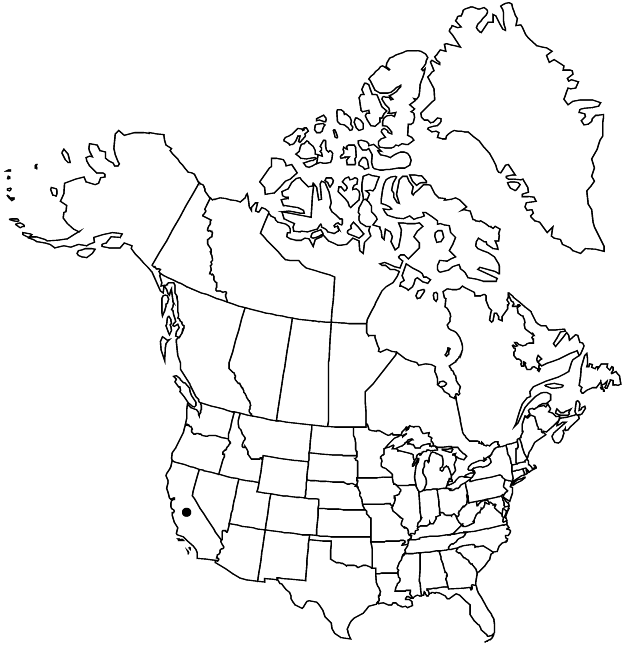Difference between revisions of "Eriogonum dasyanthemum"
Proc. Amer. Acad. Arts 8: 177. 1870.
FNA>Volume Importer |
imported>Volume Importer |
||
| (4 intermediate revisions by one other user not shown) | |||
| Line 8: | Line 8: | ||
}} | }} | ||
|common_names=Chaparral wild buckwheat | |common_names=Chaparral wild buckwheat | ||
| + | |special_status={{Treatment/ID/Special_status | ||
| + | |code=E | ||
| + | |label=Endemic | ||
| + | }} | ||
|basionyms= | |basionyms= | ||
|synonyms= | |synonyms= | ||
| Line 33: | Line 37: | ||
-->{{#Taxon: | -->{{#Taxon: | ||
name=Eriogonum dasyanthemum | name=Eriogonum dasyanthemum | ||
| − | |||
|authority=Torrey & A. Gray | |authority=Torrey & A. Gray | ||
|rank=species | |rank=species | ||
| Line 47: | Line 50: | ||
|publication title=Proc. Amer. Acad. Arts | |publication title=Proc. Amer. Acad. Arts | ||
|publication year=1870 | |publication year=1870 | ||
| − | |special status= | + | |special status=Endemic |
| − | |source xml=https:// | + | |source xml=https://bitbucket.org/aafc-mbb/fna-data-curation/src/2e0870ddd59836b60bcf96646a41e87ea5a5943a/coarse_grained_fna_xml/V5/V5_894.xml |
|subfamily=Polygonaceae subfam. Eriogonoideae | |subfamily=Polygonaceae subfam. Eriogonoideae | ||
|genus=Eriogonum | |genus=Eriogonum | ||
Latest revision as of 22:14, 5 November 2020
Herbs, erect to spreading, 2–6 dm, floccose to tomentose, rarely glabrous, grayish to reddish. Stems: aerial flowering stems erect, 0.5–2 dm, floccose to tomentose, rarely glabrous. Leaves basal and occasionally cauline; basal: petiole (0.5–)1–3 cm, usually tomentose, blade broadly obovate to roundish, (0.3–)1–2 × (0.3–)1–2 cm, white-tomentose abaxially, floccose to glabrate or glabrous and greenish adaxially; cauline sessile, blade broadly obovate to roundish, rarely elliptic, 0.5–1.5(–3) × 0.5–1(–2) cm, similar to basal blade. Inflorescences cymose, not distally uniparous due to suppression of secondary branches, mostly open, 10–50 × 10–50 cm; branches floccose to glabrate, rarely glabrous; bracts 0.5–2.5 × 1–3 mm. Peduncles absent. Involucres appressed to branches, cylindric, (3.8–)4–4.5 × 2–3 mm, glabrate; teeth 5, erect, 0.2–0.5 mm. Flowers (1.8–)2–2.5 mm; perianth white to rose, densely pubescent; tepals monomorphic, oblong-obovate; stamens included, 1.5–2 mm; filaments pilose proximally. Achenes brown, 3-gonous, 1.5–2 mm, glabrous; beak scabrous. 2n = 24.
Phenology: Flowering May–Oct.
Habitat: Sandy to gravelly flats and slopes, mixed grassland and chaparral communities, oak and pine woodlands
Elevation: 50-1400 m
Discussion
Eriogonum dasyanthemum is common to locally abundant in the North Coast Ranges (Colusa, Glenn, Lake, Mendocino, Napa, Shasta, Solano, Tehama, Trinity, and Yolo counties). A single collection apparently made at Mendocino along the Pacific Ocean in Mendocino County (Brown 942, Aug 1898, B, BKL, F, GH, IND, MO, RM) requires modern confirmation. Jepson 8962 (JEPS, UTC) supposedly was gathered “above Venado” in Colusa County, but Venado is a small town in Sonoma County. The densely pubescent flowers easily distinguish this species.
Selected References
None.
